investigatorypowersbill
Latest
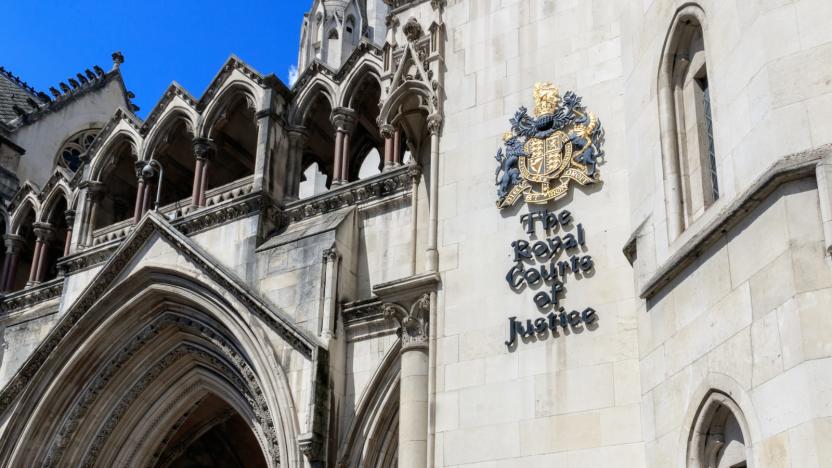
Court ruling will force UK to limit its surveillance powers
The UK government is definitely going to have to make some significant changes to its digital surveillance regime after the Court of Appeal today ruled various snooping powers unlawful. Specifically, the court said that communications data -- the who, when, where and how of a conversation, but not the content -- must only be accessed for the purposes of "fighting serious crime." Furthermore, the state must not look at data before first receiving the approval of a court or independent body. Unfortunately for the government, the Investigatory Powers Act (IP Act) that became law in late 2016 doesn't comply with these rules of thumb, so it looks like there's no other option but to make some serious amendments.

Apple is assisting the UK in terror investigations
Apple chief executive Tim Cook has confirmed his company is working with UK authorities as part of their investigations into terrorist incidents. In an interview with Bloomberg, Cook said Apple was cooperating "not only in law enforcement kind of matters, but on some of the attacks." He stressed that he "cannot speak on detail," given some investigations are active, but mentioned that "in cases when we have information and they have gone through the lawful process, we don't just give it but we do it very promptly."
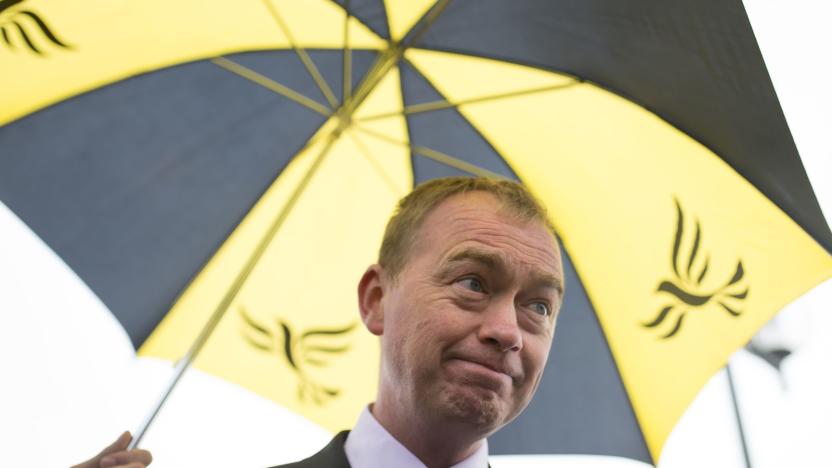
Lib Dems vow to roll back UK surveillance powers if elected
The Liberal Democrats will roll back "Orwellian" surveillance powers should they be elected in June. As the Guardian reports, the UK political party thinks the newly introduced Investigatory Powers Act (IP Act) goes too far and represents a "full frontal assault" on British citizens' rights. "It is [the] pre-internet equivalent of hiring a private investigator to follow every person in the UK and record their movements, on the grounds that it may be useful at some point in the next year," the party said in a statement.

EU court ruling could derail the UK's new surveillance law
The Investigatory Powers Act became the UK government's new digital surveillance law less than a month ago, but it appears it's already been deemed unfit for purpose. The EU Court of Justice today delivered its verdict on a long-running case concerning the legality of surveillance measures. It ruled that while the targeted retention of data for the purpose of combating serious crime is permissible, "indiscriminate" data collection is incompatible with EU human rights law. "Such national legislation therefore exceeds the limits of what is strictly necessary and cannot be considered to be justified within a democratic society," the court said.
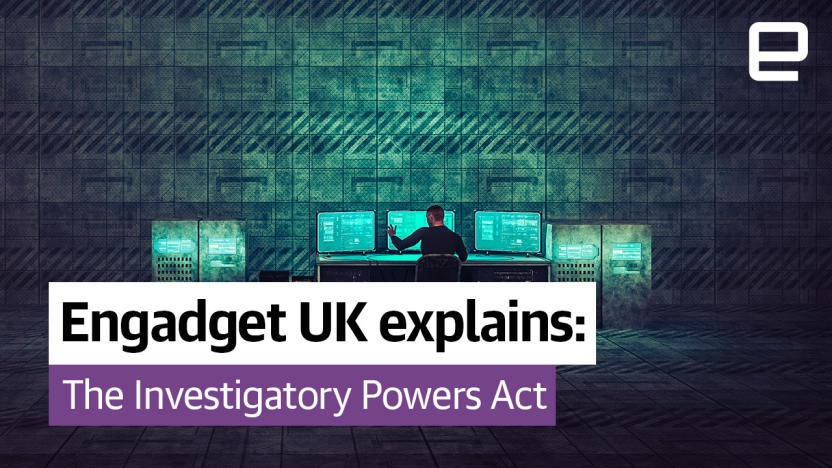
The Investigatory Powers Act explained
When Edward Snowden dragged digital surveillance into the spotlight a few years ago, many inconvenient truths were revealed about the UK government's snooping capabilities. But once the initial media and public uproar petered out, you could argue the leaks worked in the government's favour. It gave the Home Office a platform to admit various secretive surveillance powers, and update the law to protect them. That came with the Investigatory Powers Bill, a piece of legislation designed to consolidate and give transparency to existing surveillance powers, as well as introducing new ones entirely. And as of November 29th, the bill passed the final hurdle of royal assent, at which point it became law. try{document.getElementById("aol-cms-player-2").style.display="none";}catch(e){}
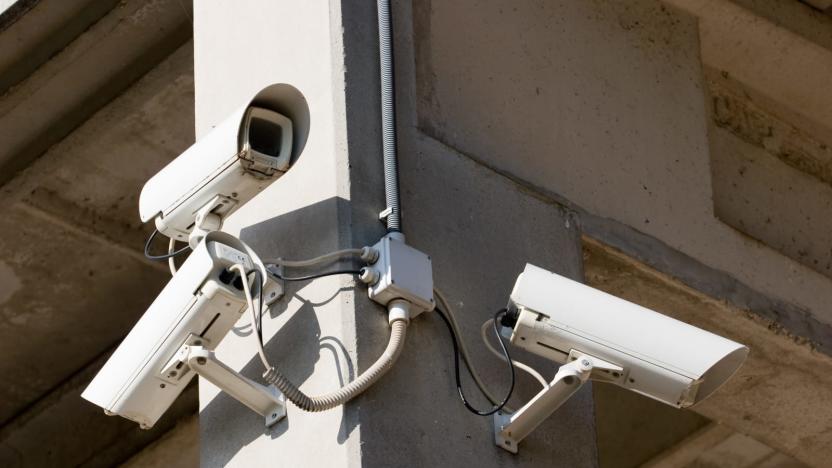
The UK's contentious surveillance bill has become law
The Investigatory Powers Bill, the UK's sweeping new piece of surveillance legislation, becomes an Act of Parliament today after receiving its final stamp of approval from the Queen -- a formality called royal assent. This comes just a few weeks after the House of Lords approved the bill, which consolidates various existing surveillance powers, and introduces several new and controversial ones.
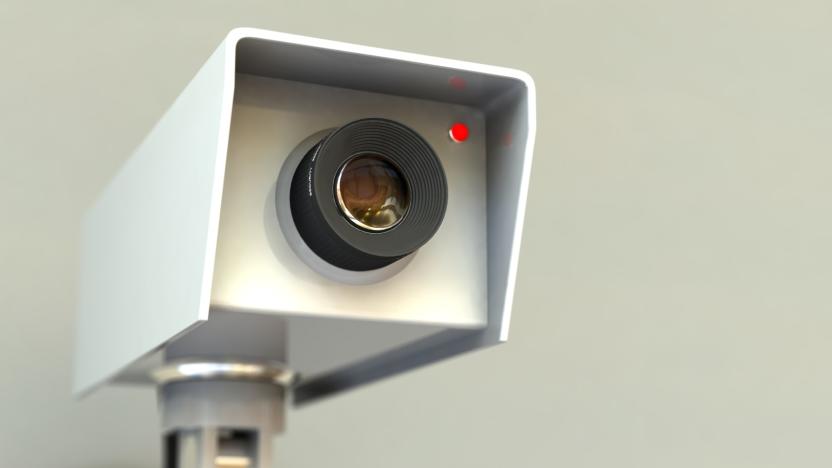
The UK's far-reaching surveillance bill is now all but law
A sweeping new surveillance regime is to be enshrined in UK law in the coming weeks, after the Investigatory Powers Bill passed through the House of Lords yesterday. All that's now required for the bill to become the Investigatory Powers Act is the Queen's approval, a formality known as royal assent. The controversial bill was first put forward this time last year, when primary author and now Prime Minister Theresa May was Home Secretary. The legislation consolidates various existing powers and introduces several fresh and far-reaching ones to become the UK government's new guide to lawful mass surveillance.

Review concludes UK bulk surveillance powers are necessary
Prior to the UK's Investigatory Powers Bill being voted through the House of Commons in June, the surveillance legislation faced criticism from several top Labour MPs. Former Home Secretary and now Prime Minister Theresa May was able to get the Labour Party on board, due in large part by agreeing to an independent review of bulk powers provided in the bill. These allow security and intelligence agencies to collect large amounts of data in various, untargeted ways -- putting the haystack before the needle. David Anderson QC, a respected authority on this type of legislation, has now published his review, providing the opinion that bulk powers are useful and fundamentally necessary.
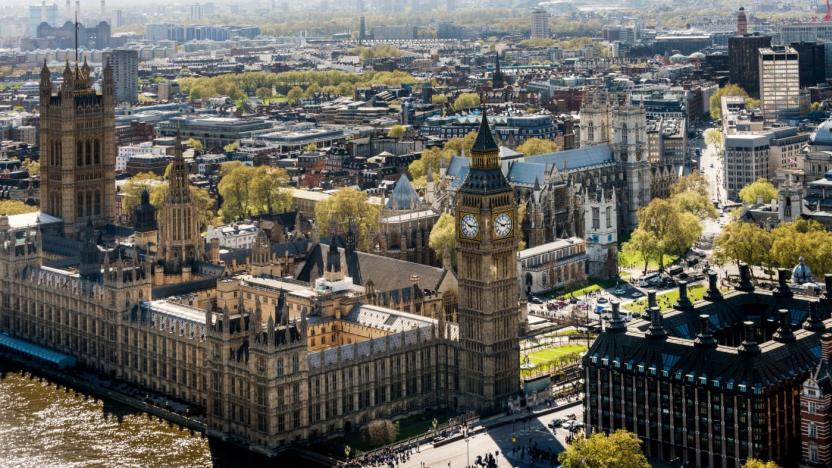
Investigatory Powers Bill gets vote of approval from MPs
The Investigatory Powers Bill passed its latest milestone yesterday, as the proposed surveillance legislation passed through the House of Commons. MPs voted overwhelmingly in favour of the bill, with 444 ayes to only 69 noes. In the run-up to the vote, Shadow Home Secretary Andy Burnham voiced several concerns, saying the draft law needed "significant improvement" before his support was guaranteed. The Home Office did manage to secure the Labour Party vote, however, thanks to several concessions on its part, including submitting to an independent review of untargeted, bulk surveillance powers.
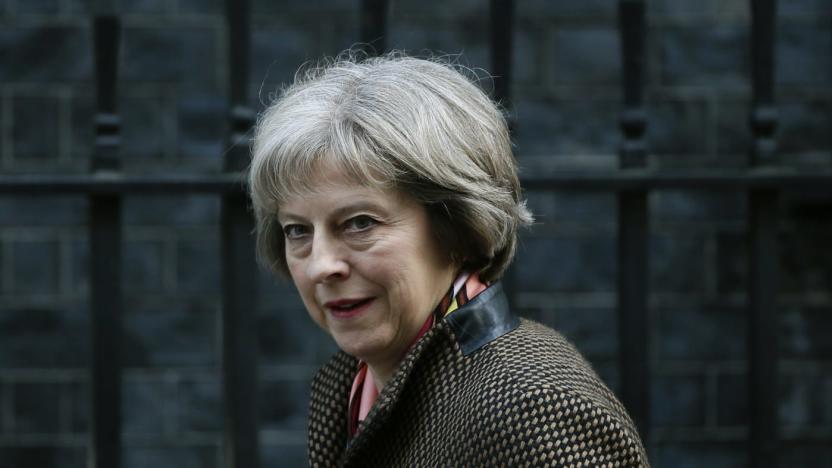
Home Secretary submits to review of bulk surveillance powers
In an attempt to get the Labour Party on board with the Investigatory Powers Bill, Home Secretary Theresa May has committed to an independent review of the bulk powers it affords law enforcement and intelligence agencies. The controversial surveillance legislation is currently being debated in parliament, but it needs broad support if it's ever going to make it into law. That's not something Labour MP and Shadow Home Secretary Andy Burnham is willing to do without "significant improvement" to the bill.

Labour party says redrafted surveillance bill needs work
The UK government is trying to push through a new piece of surveillance legislation, despite facing strong opposition from technology companies and the intelligence community. Following a cross-party investigation, the Home Office has issued a redrafted bill -- but little has changed, and the Labour Party says it still needs "significant improvement." In a letter to the home secretary Theresa May, Andy Burnham MP has asked for a stronger definition of Internet Connection Records (ICRs). With these, investigators could access the basics of your online communications -- the who, when, where and how of a particular conversation on WhatsApp, for instance.

Everything you need to know about the redrafted IP Bill
The Investigatory Powers Bill, which is set to become the UK's new, consolidated piece of surveillance legislation, was first introduced in draft form late last year. After fielding the thoughts and concerns of telecoms providers, major tech firms, intelligence specialists, privacy advocates and many more invested parties, a trio of Parliamentary committees reviewed and ultimately criticised the draft bill. Taking the red pen of the committees on board, the Home Office has revised the draft and yesterday submitted the IP Bill Mark II to Parliament. Mostly, it just tries to clarify a few of the more ambiguous proposals, but it also expands certain powers rather than reining any in.

UK IP Bill needs 'significant changes,' says joint committee
A new surveillance bill proposed by the UK government has been scrutinised and, in many ways, criticised by a joint committee in its long-awaited report today. Since November the group has been gathering evidence, through written submissions and face-to-face hearings, to understand the ramifications of the draft Investigatory Powers Bill (IP Bill). Its findings aren't too surprising, balancing the criticisms levied by internet service providers, developers and privacy advocates with the justifications put forward by the UK's intelligence and security agencies. The report supports many of the overarching powers but calls for "significant changes" in order to provide "important clarity" in key areas.

UK intelligence committee slams IP Bill for being too vague
The UK's Intelligence and Security Committee (ISC) has struck out at a controversial surveillance law being proposed by the UK government, the Investigatory Powers Bill (IP Bill). The response is notable because the Committee is one of three groups that were commissioned to look into the UK's patchwork of laws before the IP Bill was drafted. The authors believe the new bill has "suffered from a lack of sufficient time and preparation" and doesn't cover some important powers held by the UK's intelligence agencies. Given the purpose of the law is to collect, update and explain these abilities, the Committee calls the bill "a missed opportunity."

Parliamentary committee finds UK snooping bill too vague
The Joint Committee on the Draft Investigatory Powers Bill is preparing to lay out its concerns and recommendations for the new surveillance legislation, following its final evidence session with primary author, Home Secretary Theresa May. The committee's report will fuel further debate on several controversial powers, but the government's Science and Technology Committee has also been keeping a close eye on proceedings. Today, that committee published its own findings on the IP Bill, urging the Home Office to provide greater clarity on some of the proposals, and to further consider the cost and feasibility of data-gathering systems.
![[Image credit: Christopher Furlong via Getty Images]](https://s.yimg.com/uu/api/res/1.2/_EzeROcpRSYDdwY3O78RaQ--~B/Zmk9ZmlsbDtoPTQ2ODtweW9mZj0wO3c9ODMyO2FwcGlkPXl0YWNoeW9u/https://o.aolcdn.com/dims-shared/dims3/GLOB/crop/5450x3380+0+0/resize/1400x868!/format/jpg/quality/85/https://o.aolcdn.com/hss/storage/midas/f2dd10e4ac56ff7ad2d18b6038de6fac/203266961/491520548.jpg.cf.jpg)
Home Secretary leaves plenty unanswered after IP Bill debate
At its heart, the Investigatory Powers Bill aims to give law enforcement and government agencies the means and powers to access Brits' online communications to aid their investigations. The bill's joint committee, whose job it is to scrutinise the legislation, has for several months been consulting with ISPs, mobile operators, tech companies, legal professionals, intelligence experts, privacy groups and other stakeholders. The last of these public evidence sessions took place on Wednesday, with Home Secretary Theresa May, the author of the IP Bill and long-time advocate of expanding the government's surveillance capabilities, being quizzed by the committee. While May attempted to provide some clarity on ambiguous parts of the bill and address concerns raised in previous sessions, plenty of uncertainty remains.

Google, Microsoft and Twitter have 'issues' with the IP Bill
Facebook, Google, Microsoft, Twitter and Yahoo have banded together to list their concerns with the Investigatory Powers Bill, a proposed piece of legislation that would update and extend the UK government's surveillance powers. In a written piece of evidence, the group says they're worried about how the new law would affect companies based overseas, encryption and the nature of the judicial review system described as a "double-lock" for warrants. The Bill only explains so much about the extent of these powers -- the minutiae is often left to the Codes of Practice -- so above all the companies are asking for some clarifications.

UK claims its spying bill will protect you from cyberbullies
When politicians want approval for controversial security measures, they sometimes like to lean on insecurities about your kids' safety -- the "won't somebody think of the children?" trope is so common that it became a joke in The Simpsons. And the British government isn't above using that tactic to get its draft Investigatory Powers Bill past critics, apparently. Home Secretary Theresa May tells a member of Parliament that the far-reaching surveillance legislation would help tackle the "pernicious" problems of cyberbullying and trolling. She claims that the bill would make it easier for police to pinpoint both the harassers and their victims, making it harder to threaten someone anonymously. See? Your young ones will be safer!

Apple unsettled by the UK's draft surveillance bill
Apple CEO Tim Cook's position on encryption is pretty clear: it's important and shouldn't be weakened with "backdoors" that would give governments open access to communications. Now, the company has emphasized its stance yet again in a written response to the UK's draft Investigatory Powers Bill, a new piece of legislation that seeks to collate, clarify and extend the surveillance capabilities set out in previous laws.
![[Image credit: Shutterstock]](https://s.yimg.com/uu/api/res/1.2/VpmJ6PlQRRCD8cPWHEBUdA--~B/Zmk9ZmlsbDtoPTQ2ODtweW9mZj0wO3c9ODMyO2FwcGlkPXl0YWNoeW9u/https://o.aolcdn.com/hss/storage/midas/49116fbd89e55352e0fdc212210c4b5f/203142547/stock-photo-young-girl-in-a-fashionable-sweater-sitting-in-a-cafe-with-a-cup-of-coffee-and-read-messages-on-269314832.jpg.cf.jpg)
UK carriers say draft snooping law will be a technical feat
Key to the draft Investigatory Powers Bill is a proposal that would require internet and other communications providers to collect and store 12 months of web traffic data, so it can be made available to government agencies when needed. It's a subject of ongoing debate in Parliament, and just last week, the UK's major ISPs voiced their concerns over the cost and technical challenges associated with gathering and processing these Internet Connection Records (ICRs). Yesterday, it was the turn of execs from EE, Three, O2 and Vodafone to meet with the draft bill's joint committee, and while the big four carriers echoed the sentiments of the ISPs, they are even more wary of the scale and scope of what the government is asking them to deliver.


